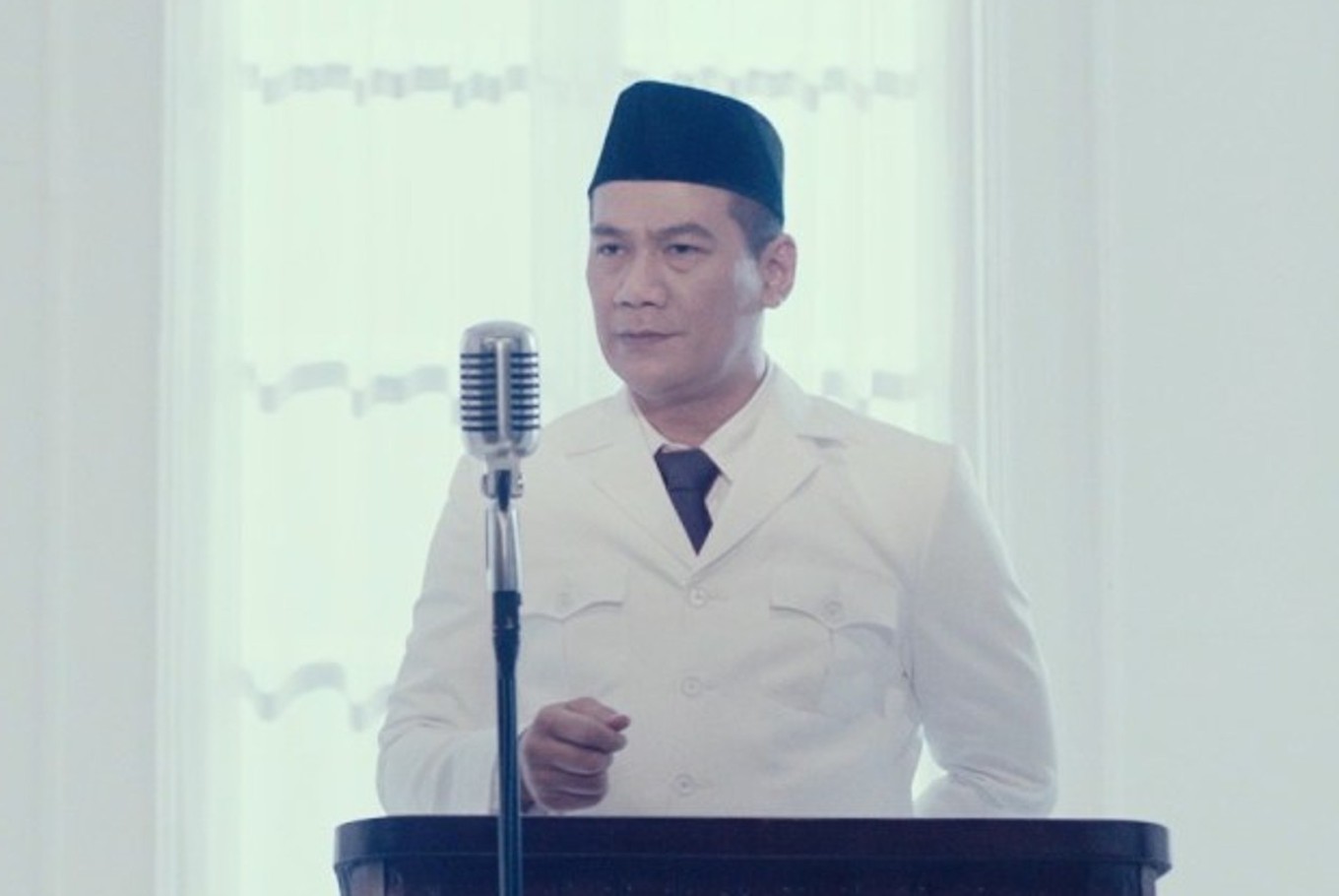Popular Reads
Top Results
Can't find what you're looking for?
View all search resultsPopular Reads
Top Results
Can't find what you're looking for?
View all search resultsUpcoming film seeks to awaken Pancasila spirit through Sukarno speech
Change text size
Gift Premium Articles
to Anyone
A
documentary-style historical monologue film on Pancasila (the five principles of the national ideology) is set to be screened in local cinemas on Independence Day on Aug. 17.
Directed by notable filmmaker and producer Tino Saroengallo and actor Tyo Pakusadewo, Pantja-sila: Cita-Cita & Realita (Pancasila: Aspiration & Reality) aims to bring the ideology closer to the younger generation.
The 80-minute film is set on June 1, 1945, where Indonesia’s founding father and first president Sukarno (Tyo Pakusadewo) delivers a speech during a session of the Indonesian Independence Preparation Investigative Assembly (BPUPKI). During the speech, Sukarno calls for the country's independence as well as explaining the five principles later known as Pancasila.
(Read also: President Jokowi to officially declare June 1 Pancasila Day)
During a press conference on Monday, Tyo said that the idea for the film came from his own agitation for the promotion of Pancasila in schools. “Through my children, I saw that the younger generation don’t recognize themselves in a broader sense; what Indonesia is, let alone Pancasila,” he said.
Prior to filming, he was given a book entitled Pedoman untuk Melaksanakan Amanat Penderitaan Rakjat, Djilid I (Guidelines on Implementing the Mandate of People's Suffering), which is a collection of Sukarno’s speeches between the 1930s and 1960s. One of them, which was delivered on June 1, 1945, immediately moved him. “It was the answer to my agitation,” he said. “That's why the main character [in the film] is not me as Sukarno. Instead, the speech itself is the main star, which should be listened to for the sake of everyone.”
(Read also: The Pancasila that we know)
Supported by Jakarta Media Syndication and Geppetto Productions, the film is consistent in making the speech its focus, with the addition of footage and photos from the National Archive and other sources. Despite some critics saying that some of the footage does not correlate with the 1945 speech since it is of events that occurred after the New Order, they could be seen as a representation of the reality of Pancasila nowadays as well as a contrast with what Sukarno actually said in his speech.
On the downside, the hand-clapping effect sounds too artificial, especially since it is repeated over and over again, reducing the effect of the well-constructed setting of the BPUPKI session.
Overall, those who watch this film, especially Indonesians, can expect to reflect on themselves, asking what exactly Pancasila means to them personally and absorbing what Sukarno aimed for Indonesia as an independent country. (kes)











